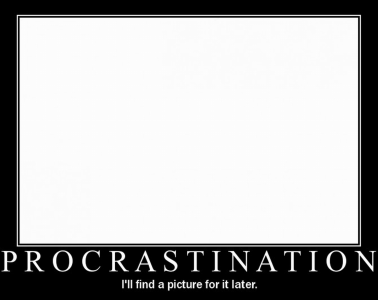Any business owner that has ever interviewed potential employees will likely not be looking for “procrastination” as one of the traits they look for in new hires. Similarly, you’ll be hard pressed to find someone looking for a job that highlights procrastination as a characteristic.
Given that, you might be a bit surprised to find that there have been a few unofficial studies that indicate a few ways that procrastination can actually help employees be more productive and less stressed out at work.
 As an example, let’s say you’re an employee that has a to-do list comprised of four things to do within the course of a day. One of those tasks is a real doozy, while the others are miniscule. Furthermore, the doozy is due quite soon, with a deadline looming that afternoon. The other tasks aren’t as important.
As an example, let’s say you’re an employee that has a to-do list comprised of four things to do within the course of a day. One of those tasks is a real doozy, while the others are miniscule. Furthermore, the doozy is due quite soon, with a deadline looming that afternoon. The other tasks aren’t as important.
Most people will instantly be intimidated by the larger, more important task. And since no one likes being intimidated, the natural reaction is to not want to deal with that task right away. Those that do will end up being stressed and let that task basically ruin their day. This does not bode well in terms of productivity and error free work.
Instead, some studies have shown where it may be beneficial to put off that larger task—although not to the point of being reckless.
The trick is to knock out at least one of those smaller tasks first. This kicks off your day with a feeling of accomplishment. Try to get in the mindset of seeing each task of equal. This way, the huge task really won’t seem so huge and detrimental by the time you get to it. Believe it or not, this art of putting things off has been studied by a Stanford professor (John Perry) who calls this “structured procrastination.”
What do you think of this work approach? Does it have logical merits or is it a prime opportunity for employees to drop the ball?
